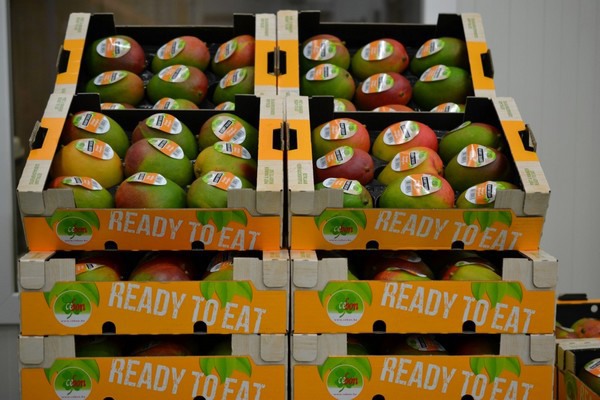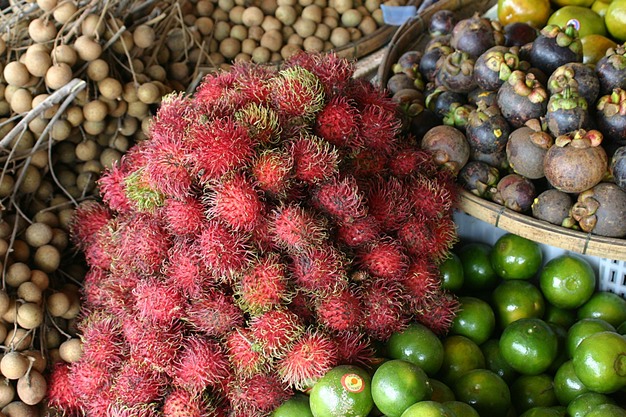With the autumn holiday, the market for exotic fruits is currently quieter. "Sales always dip a bit during these weeks, but in the coming weeks, we expect a gradual increase," says Ive Lambert from Starfruit, who notes that offering niche products in the exotic segment will become increasingly challenging in the future.
"The mango market seems to have stabilized," the trader from the Flemish importer begins. "There was a significant shortage, which caused prices to skyrocket. Eventually, this led to market blockages and a turning point, resulting in falling prices. More volume is now coming in from Brazil, and there's even a slight pressure to sell all the volumes. However, in the coming weeks, we plan to start some promotions that should help resolve this. We will also begin shipping from Peru next week."

"Additionally, the situation with avocados is currently a bit tricky and tight," Ive continues. "Peru is significantly ahead of last year's schedule, and there has been a noticeable decrease in the amount of product coming our way. This has caused prices to rise slightly in recent weeks, but because the market is relatively calm, the impact has been manageable. I do foresee a slight increase in certain sizes, but it won't be extreme until we reach a point where volumes from other origins start entering the market again."
These alternative sources are slowly ramping up, he asserts. "It will still be challenging in terms of supply for a few weeks, but Morocco is gradually coming in with product, and Spain is expected to start supplying in November. Once both are fully in production, the pressure will ease. Colombia is also beginning to ramp up, but those volumes are not large. Finally, there's Chile, which has been relatively expensive for the European market in recent years, as they have a high domestic demand and tend to prioritize shipping to the U.S. over Europe due to transport and cost considerations."
Product availability problems
According to Ive, this poses a significant challenge for the future. "The standards increasingly imposed by supermarkets make it more and more difficult to import products. There are more and more certificates required, leading exporters to think, 'Forget it. We'll send our products to parts of the world where the demands are lower, and we often get better prices.'"
"This will make a difference, especially with smaller products. The costs of certifications are substantial. Larger products can still absorb these costs, but when certification fees reach €40,000 a year and you only handle 100,000 cartons, you're paying half a euro per box just for certifications. This significantly drives up the cost structure, making it unprofitable," Ive explains.
 "In products like avocados, for example, Chile is increasingly choosing to export to the U.S. I understand why—lower costs, less paperwork, reduced transport risks, and higher returns make it an easy decision. We've seen this with pomegranates this year; nothing came to Europe from Chile, and we can expect this trend to continue. Climatic conditions are becoming more challenging. We find ourselves in a situation where global food demand is rising, but production is heavily dependent on climatic factors. People will opt for certainty, and in years when things go wrong, we will see a lot more volatility."
"In products like avocados, for example, Chile is increasingly choosing to export to the U.S. I understand why—lower costs, less paperwork, reduced transport risks, and higher returns make it an easy decision. We've seen this with pomegranates this year; nothing came to Europe from Chile, and we can expect this trend to continue. Climatic conditions are becoming more challenging. We find ourselves in a situation where global food demand is rising, but production is heavily dependent on climatic factors. People will opt for certainty, and in years when things go wrong, we will see a lot more volatility."
The trader is convinced that product availability will become a serious issue. "We might not experience it ourselves, but future generations will face a tough situation. Growers here are increasingly hindered by regulations, while we're also imposing more rules on imports, which will lead exporters to overlook us. Eventually, this could reach a point where food becomes genuinely unaffordable. I am firmly convinced of this."
For more information:
Ive Lambert
Starfruit Company
Werkhuizenkaai 112-154
Brussels - Belgium
Tel: +32 (0)2242 0876
[email protected]
www.starfruit.be










